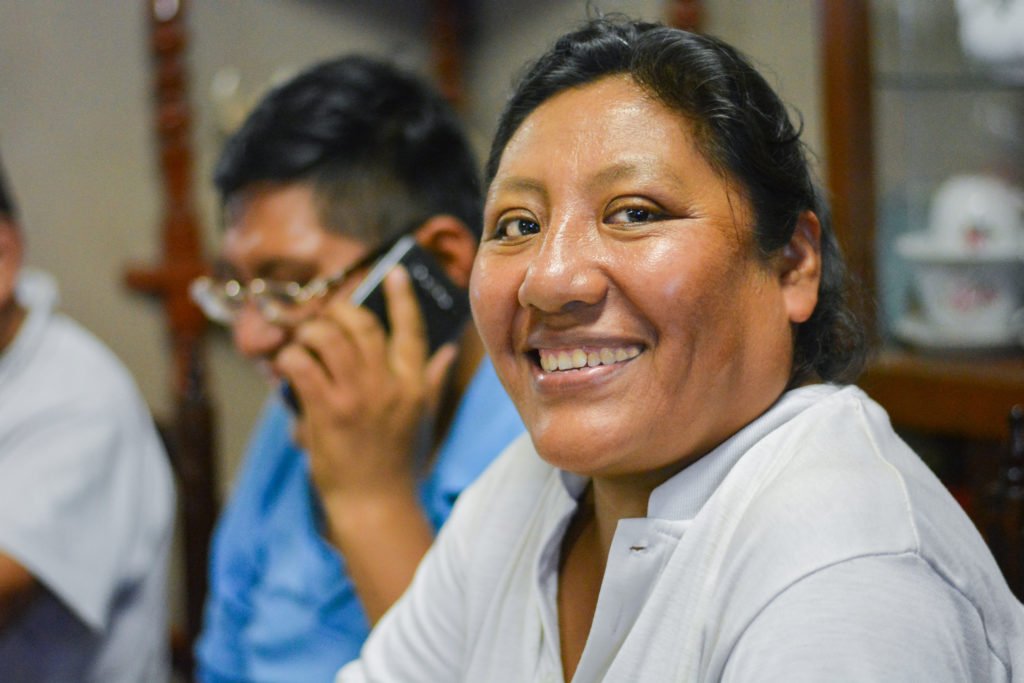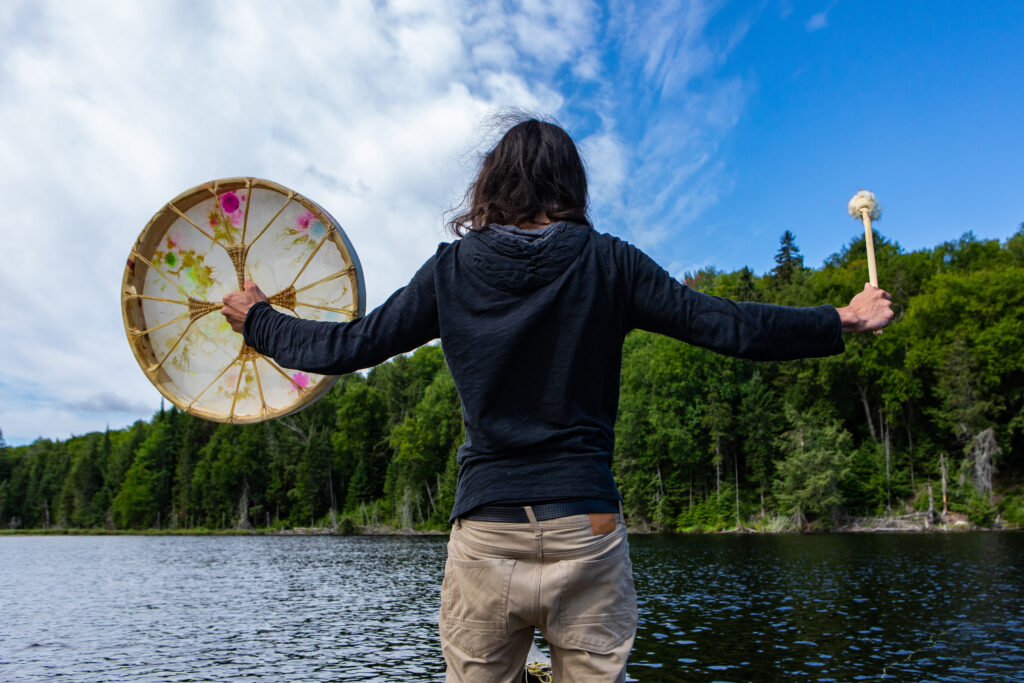Indigenous Peoples’ Day is Monday, October 14. If you haven’t celebrated it before, you might assume it’s an opportunity for education and commemoration – a day to recognize Native American history and culture. And you’d be right.
But this day is a little different from other holidays, and not just because it’s special to us at Tribal Health. One reason: it offers an opportunity to move beyond negative stereotypes and put a spotlight on Indigenous achievement. From Hollywood to history books to Halloween costumes, most mainstream depictions of Native Americans promote “noble savage” tropes and tragic narratives. Native American history is presented through sepia-toned photographs and somber documentaries. More recently, some non-Native people are aware of the forced boarding school era and medical exploitation, such as the practice of sterilizing Native American women without consent.
But the complexity of modern Indigenous lives is much richer – and Indigenous Peoples’ Day is the perfect time to recognize Native American creativity, resilience, and power.
Is Indigenous Peoples’ Day Replacing Columbus Day?
Let’s tackle the other reason this holiday is different. It has to do with a question you might hear people whisper to each other every autumn: “When did Columbus Day become Indigenous Peoples’ Day?”
If you attended an American elementary school, you probably grew up hearing that Christopher Columbus “discovered” America in 1492. You might even remember the catchy rhyme: “In 1492, Columbus sailed the ocean blue.” While that much is accurate, the rhyme omits the inconvenient fact that he didn’t land in North America. It also omits the horrors spelled out in the letters and diaries of Columbus and his men: assaults, maiming, murders, and enslavement of both Indigenous people in the Caribbean and Spanish colonists. Today historians recognize Columbus as the forefather of both the Atlantic slave trade and Native American genocide – yet many states continue to celebrate him as the discoverer of the United States, a land he never set foot on.
Enter Indigenous Peoples’ Day, which was officially born in 1992. While the holiday had been discussed and honored among some Tribal nations for years, Indigenous leaders across the Americas agreed to formally launch Indigenous Peoples’ Day on the 500th anniversary of Columbus’ first voyage as a counter-celebration.
It wasn’t an overnight national adoption. But the rise of the Internet in the 1990s loosened the floodgates of knowledge – and soon more Americans learned that Columbus’ celebrated “discovery” was actually a brutal invasion that bore no resemblance to schoolbook history. With more people beginning to view Columbus Day as a glorification of dispossession and violence, more organizations and municipalities have replaced it with Indigenous Peoples’ Day.

So How Do We Celebrate Indigenous Peoples’ Day?
We’ve made progress in recent years when it comes to rectifying the wrongs of the past. We’ve renamed sports teams, retired offensive mascots, taken down racist monuments. Shows like Reservation Dogs, Molly of Denali and the latest Predator movie Prey, offer vital representation for Native people who rarely see their lives depicted on screen. The ongoing crisis of missing and murdered Indigenous women is getting more visibility. The Department of the Interior is finally helmed by a Native American, Secretary Deb Haaland, a member of the Pueblo of Laguna.
But Columbus Day continues to be taught as a false narrative of American history, sometimes paradoxically celebrated side by side with Indigenous Peoples’ Day. Many children still grow up thinking of Columbus as an American hero. While he offers students a valuable lesson in the dangers of colonialism, it’s time to enshrine Indigenous Peoples’ Day by honoring the past losses, present culture, and beautiful future of Native Americans.

Here are a few ways to celebrate Indigenous Peoples’ Day:
- Study up on real Native American history. A good starting place: the New York Times bestseller The Heartbeat of Wounded Knee by David Treuer.
- Answer your own questions about Native culture by reading Everything You Wanted to Know about Indians But Were Afraid to Ask by Anton Treuer.
- Visit a public festival to support artists, vendors, and local businesses and sample traditional foods. Indigenous People’s Day Phoenix Fest is a great choice if you’re in the Southwest!
- Share resources with your school, workplace, church, hospital, or community center. You don’t have to create your own; advocacy organizations like Illuminative have posters, lesson plans, videos, and other useful content ready for use.
- Donate to an Indigenous organization:
- American Indian College Fund provides scholarships for Native American students.
- IllumiNative is a nonprofit that increases Native American visibility and community power.
- Missing and Murdered Indigenous Women USA addresses the ongoing crisis against Indigenous women.
- National Native American Boarding School Healing Coalition assists survivors of the U.S. boarding school atrocities and supports repatriation efforts.
- Native Hope supports families, scholarships, and economic initiatives in Indian Country.
- Redhawk Native American Arts Council educates the public about Indigenous people across the Americas through song, dance, theatre, storytelling, and other forms of art.
- Warrior Women Project combines oral history, multimedia, and activism to bridge the divide between mainstream media and Indigenous communities.
Regardless of your background, Indigenous Peoples’ Day is a way for every American to engage in accurate and intelligent advocacy. This holiday offers an opportunity to move from falsehood to truth, and from misguided recognition to vibrant celebration. Please honor Indigenous Peoples’ Day with us and celebrate a world where all Tribal nations can flourish.


2 Responses
Miigwetch 🍓
Wonderful article! I especially liked the various groups to donate to. Thank you